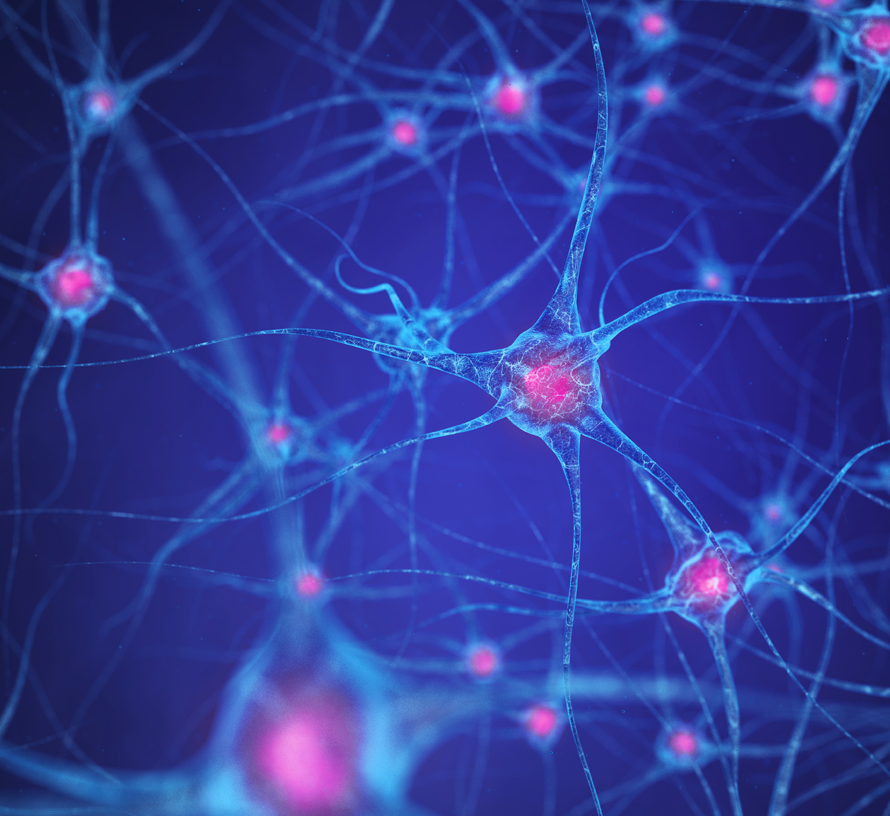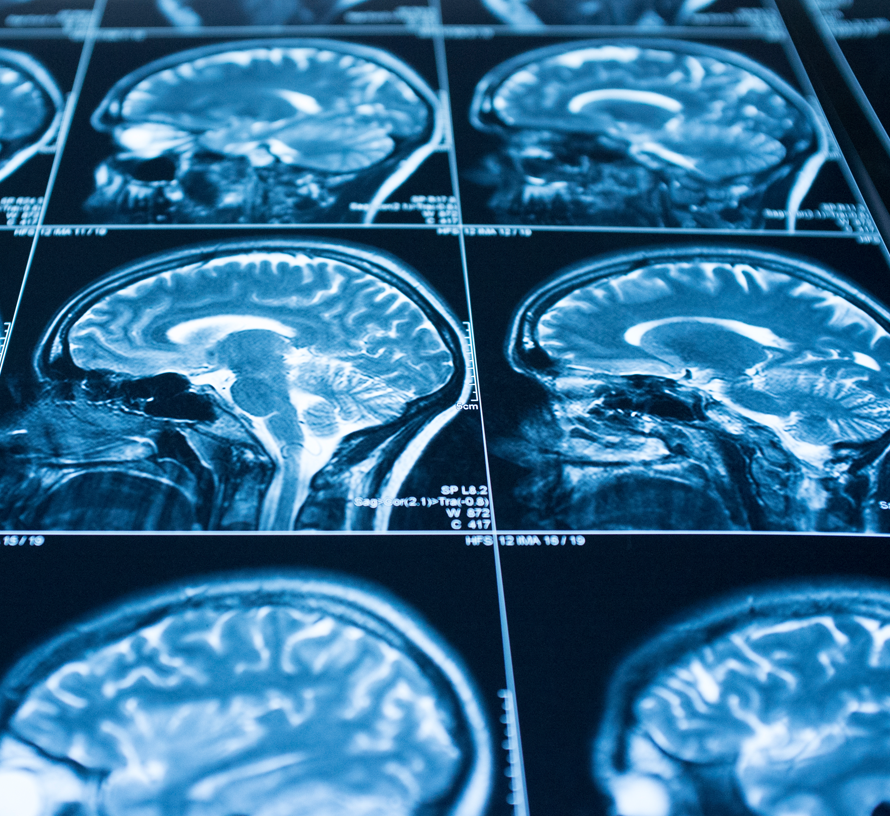2019 Round B Grant Recipients


University of Auckland
$287,036
Understanding Fragile X Syndrome Through Direct Cell Reprogramming
Fragile X syndrome (FXS) is the most common known genetic cause of intellectual disability and autism spectrum disorder. Inaccessibility to developing human brain cells is a major barrier to studying FXS. To overcome this, Professor Bronwen Connor’s team will use cell reprogramming technology to turn skin cells from FXS patients into brain cells. They will study the development of FXS brain cells and investigate whether they exhibit differences in the expression of genes and proteins associated with development, and impaired function compared to normal brain cells. This project will establish a human model of FXS and enhance our understanding of FXS pathogenesis.


University of Otago
$248,808
Role of Insulin-like growth factor 2 in post-partum mood resilience
During the post-partum period, new mothers are vulnerable to mood disorders. Generation of new neurons (neurogenesis) is known to contribute to the pathogenesis of anxiety and depression. Insulin-like growth factor 2 (IGF2), affects neurogenesis and anxiety levels, and Professor David Grattan’s team has found that levels of IGF2 are increased during pregnancy in areas of the brain where this neurogenesis occurs. Using innovative neuroscience methods, they will test the hypothesis that hormone-induced IGF2 is required for increased neurogenesis in pregnancy, thereby acting to alleviate maternal anxiety postpartum. These studies will assist in development of treatments for patients with post-partum mood disorders.


University of Auckland
$176,975
Treating spinal cord injury using a novel bioelectronic implant
Impacts from falls or car crashes can damage the spinal cord, interrupting nerve pathways and resulting in paralysis and loss of sensation. Dr Bruce Harland’s team has developed a thin flexible implant for placement over spinal cord injury sites, capable of detecting abnormal nerve cell activity and guiding nerves to reconnect with each other. They will use this implant to detect changes in nerve signalling due to injury, guiding delivery of electrical impulses to promote regrowth and reconnection of nerve cells. This has real potential to promote nerve cell recovery after injury, and have a huge impact on people with spinal cord injuries.

University of Otago
$215,170
Mechanisms of Tau protein-induced synapse weakening
When networks of brain cells are chronically active, they will weaken their connections with one another to bring activity back to a preferred level. This “homeostatic” process is critical for regulating brain activity, but may unfortunately contribute to disease. For example, Alzheimer’s disease is characterised by heightened brain activity and with the production of proteins that weaken synapses (the connections between brain cells). Dr Owen Jones’ team will investigate the importance of one such protein, tau, in homeostatic synapse weakening. Tau production and synapse weakening are a hallmark of several disease states, suggesting this process may contribute to multiple pathologies.


University of Otago
$155,694
Epilepsy in Māori Children
Epilepsy is the most common serious neurological disorder of childhood. In the Wellington region Māori children are 4 times more likely to have epilepsy than non-Māori children with rates similar to low income countries. This study will describe the types of epilepsy, causes and associated disorders in Māori children and compare these to non-Māori children. If, as is found in low income countries, the increased rate of epilepsy in Māori children is due to preventable causes such as trauma, infection and birth difficulties a focus on the prevention of these can help reduce epilepsy rates and improve Māori health.

Victoria University of Wellington
$15,000
Equipment purchase (EEG digitizer) to enhance Neurological Foundation Project 1839 RF
Electroencephalography (EEG) enables recording of neural activity with excellent temporal resolution, high flexibility for use with patients, and low cost. Here Dr Corinne Bareham’s team propose to use EEG to perform a technique called source reconstruction to identify the neural structures underlying function(s) and disorders following damage. Using a digitization device, they can increase precision of the source reconstruction procedure to identify crucial brain regions underlying functions, and dysfunctions, informing therapeutic interventions.

University of Auckland
$14,870
Toward new mechanisms of pain relief for Multiple Sclerosis
Over 50% of Multiple Sclerosis (MS) patients suffer from pain caused by the disease, and this is only partially responsive to current pain medications. A protein called nerve growth factor is found in high levels in patients and this is known to increase pain-like senses when it binds to receptors on the surface of cells. In this project Dr Jack Flanagan’s team will explore the really exciting prospect that blocking the action of nerve growth factor could relieve pain caused by nerve degeneration during MS, as well as search for new blockers.

University of Auckland
$15,000
Multiplex in situ hybridisation and immunohistochemistry for the study of Brain Plasticity in Alzheimer’s Disease
Alzheimer’s disease is the most common form of dementia, for which there is currently no effective treatment. A hallmark feature of the disease is that neurons involved in memory function lose the ability to change their physical structure. This is due to loss of a protein called polysialylated neural cell adhesion molecule (PSA-NCAM). Using new labelling techniques for human brain tissue, Dr Helen Murray’s team will study all the mechanisms that might cause the loss of PSA-NCAM. In doing so, this project aims to identify potential new targets to maintain memory function and delay the disease progression.

University of Auckland
$14,981
Developing a non-invasive assay of catamenial epilepsy: investigating how sex hormones in the combined-oral contraceptive affect the human female brain
Catamenial epilepsy affects around 40% of females with epilepsy, where the number of seizures doubles at certain points of a female’s menstrual cycle. The exact underlying cause has yet to be determined. Catamenial seizures often do not to respond to typical antiepileptic drug treatment. Furthermore, despite regulating hormone changes the combined-oral contraceptive pill does not treat catamenial epilepsy. The proposed study will investigate physiological changes in the human female brain over each monthly cycle, even when the contraceptive pill is supressing hormone changes. This will help to reveal the brain mechanisms that may underlie catamenial epilepsy, thus informing future research.

University of Auckland
$116,805
Improving the Therapeutic Potential of Tyrosine Kinase Inhibitors in the Treatment of Glioblastoma: Conjugation with Heptamethine Cyanine Dyes
Glioblastoma multiforme (GBM) is the most common and aggressive primary glial tumour in adults. The diagnosis carries with it a dismal median survival period of 15 months. The current front-line chemotherapy agent, Temozolomide (TMZ), is failing to provide long-term remission for GBM patients due to the presence of treatment-resistant cells. This project aims to synthesise and characterise novel blood brain barrier (BBB) crossing dyes that are conjugated to anti-cancer tyrosine kinase inhibitors in patient-derived tumour cells. Additionally, this project will provide novel insight into signalling pathways implicated in GBM and facilitate the design of targeted therapies to overcome TMZ resistance.
Supervisors: Dr Thomas Park, University of Auckland; Prof Mike Dragunow, University of Auckland

University of Auckland
$116,805
Investigating the role of distinct α-synuclein strains in different α-synucleinopathies
Synucleinopathies are a devastating group of neurodegenerative disorders defined by the abnormal accumulation of α-synuclein protein within the brain. This α-synuclein build-up subsequently leads to the progressive degeneration of neuronal and non-neuronal brain cell types. Despite being defined by this common pathological event, synucleinopathies exhibit extensive variability in their specific pathologies, progression and clinical dysfunctions. It was recently discovered that α-synuclein can adopt different structural forms (strains) that impart strain-specific functional properties. In this project James Wiseman aims to identify and characterise these α-synuclein strains within the human brain and investigate how they affect different regions and cell types across α-synucleinopathies.
Supervisor: Prof Maurice Curtis, University of Auckland

$305,069
The role of stress on Duchenne muscular dystrophy pathogenesis
Duchenne muscular dystrophy (DMD) is a fatal neuromuscular disease affecting 1 in 40,000 New Zealanders. Patients with DMD suffer from muscle degeneration and neurocognitive dysfunction that are recapitulated in a mouse model of DMD (mdx). Dr. Lindsay et al. recently identified that a hyper-exaggerated response to stress in mdx mice is capable of inducing acute cardiac failure and exacerbating some phenotypes of dystrophinopathy. However, some mdx mice remain resistant to stress and have a less severe muscle pathology. This project will understand the mechanisms that regulate stress-sensitivity in mdx mice with the intention of identifying novel targets for therapeutic development.
Mentor: Prof Aaron Russell, Deakin University

University of Auckland
$229,185
An in vitro organoid model of spinal cord injury to accelerate the translation of basic science to successful clinical outcomes
Spinal cord injury is a devastating condition that significantly compromises quality of life. There are few treatment options available for injured patients and the body’s natural healing mechanisms are generally not enough to provide meaningful recovery. To enable testing of a large number of new treatments there is a critical need for non-animal models that closely replicate human spinal cord injury. This project addresses that unmet need by using human stem cells to grow ‘mini-brains’ that form structures similar to the human spinal cord. The model spinal cords can then be damaged and used to test how new treatments promote healing.
Mentor: Assoc Prof Darren Svirskis, University of Auckland

$36,000
Prevalence and carrier rates of genetic mutations associated with mitochondrial disease in a healthy cohort and genotype:phenotype correlations
Mitochondrial disorders, collectively the most common group of inherited metabolic disorders, may present with a wide spectrum of clinical manifestations at any age, frequently involve the neurological system, and may cause multisystem dysfunction. Despite their collective burden, potential for treatment and implications for affected individuals and their families, accurate estimates of the frequency of genetic mutations associated with mitochondrial disease (MD) and their spectrum of manifestations in the community is limited. Dr Eloise Watson seeks to determine the prevalence of MD genetic mutations through examining a large, healthy, community cohort, and to evaluate their impact on affected persons.
Mentor: Prof Carolyn Sue, Royal North Shore Hospital and Kolling Institute of Medical Research, New South Wales

University of Auckland
$202,036
Investigating inflammation-induced synapse loss using adult human neurons
We believe that human brain disorders are best studied using human brain tissue. With the recent establishment of a research platform that enables maintenance of adult human brain slices in a dish, Dr Kevin Lee seeks to identify and validate a human-specific pathogenic mechanism that underlies neuroinflammation, a major pathogenic contributor to many neurodegenerative diseases. Dr Lee’s goal is to use these living human brain cells to further our knowledge of the human brain and its pathology, and screen potential pharmaceutical drugs that can be used as treatments for people diagnosed with neuroinflammation-related disorders.
Mentor: Assoc Prof Johanna Montgomery, Prof Mike Dragunow, University of Auckland

$187,243
Investigating the effects of cognition on airway protective outcomes in people with Parkinson’s and Alzheimer’s disease
People with Parkinson’s disease (PD) and Alzheimer’s disease (AD) often develop swallowing and coughing impairments, increasing the risk that food/liquid enters the lungs and becomes infected – known as aspiration pneumonia. Swallowing and coughing often occur when people are distracted, or dual-tasking, yet little is known about how dual-tasking helps, or hinders, swallowing and coughing. Dr Sarah Perry’s goal is to study how dual-tasking differentially affects people with PD with normal cognition, those with PD and mild cognitive impairment, or mild cognitive impairment of Alzheimer’s type. Results will help to identify people at risk for aspiration pneumonia earlier, and design appropriate swallowing/coughing rehabilitations.
Mentors: Prof Tim Anderson, New Zealand Brain Research Institute; Dr Phoebe Macrae, University of Canterbury Rose Centre for Stroke Recovery and Research

$6,000
Hyper-Acute Stroke Service Provision in New Zealand
Stroke affects approximately 8000 New Zealanders per year and this number is projected to rise by 40% in the next 10 years. Currently there are effective treatment options for stroke, however patients need to be taken to an appropriate centre and receive treatment without delay. Unfortunately access to stroke treatments are not consistent across New Zealand. Identifying what works well and what needs improvement has thus far contributed to improved rates of stroke treatment. The aim of this project is to review the data from the National Stroke Reperfusion Register to assess progress and identify further areas of improvement.
Supervisor: Assoc Prof Anna Ranta, University of Otago, Wellington

$6,000
3D reconstruction of functional and anatomical neural circuits: Combining advanced optogenetic and microscopy techniques
The subthalamic nucleus is a key part of the basal ganglia, playing a critical part in motor control. It is hyperactive in Parkinson’s Disease and is a successful target of deep brain simulation, yet little is known about the organisation of neurons inside the nucleus and how they connect with each other. By combining novel functional and anatomical mapping techniques, we will gain greater knowledge into the nucleus structure and the network of neurons within. This will lead to a better understanding of the subthalamic nucleus role in motor control, and how this relates to Parkinson’s Disease.
Supervisor: Dr Peter Freestone, University of Auckland

$6,000
The effect of early-life adversity on levels of IL-1 receptors in the ventral hippocampus of male and female rats
This project will determine the effects of early-life stress and gender on levels of inflammatory markers in the brain that contribute to an increase in anxiety in both male and female rats. Early-life stress is a major risk factor for developing mood disorders such as depression or anxiety. Although females have a higher prevalence of mood and anxiety disorders, preclinical studies are usually done with male animals. Therefore, this project will provide much needed information about sex differences in anxiety mechanisms, contributing to the ultimate goal of finding an efficacious treatment for anxiety and mood disorders.
Supervisor: Gina Forster, University of Otago

MND Association
$11,837
MND New Zealand Research Conference
Following four years of hard work by our community raising funds for research, MND New Zealand has set a bold aim to "develop a globally connected comprehensive national MND Research programme". Progress toward this goal is currently impeded by a lack of research personnel, particularly those required to bring clinical trials to New Zealand. MND’s inaugural research conference will create a forum for knowledge exchange and the opportunity to build international alliances to connect New Zealanders to global research initiatives. Promoting this rapidly changing and exciting research environment will help us to build a MND workforce to deliver the therapies that will "care" today and "cure" tomorrow.

University of Auckland
$3,000
Centre for Brain Research PostDoctoral Retreat
The Centre for Brain Research is a cross-faculty University of Auckland research centre consisting of researchers with a range of expertise and research topics. Central to the Centre for Brain Research’s success over the last decade has been the development of early career researchers, who have benefited greatly from the annual “postdoctoral retreat” at the Leigh Marine Laboratory. At the retreat, researchers present their findings, learn from senior academics, and engage in professional development. This year, the retreat will focus on developing collaborations, and the skills developed will contribute to New Zealand’s next generation of neuroscientists’ development as independent scientists.

University of Auckland
$1,210
To attend the Australasian Neuroscience Society 2019 (ANS), the ARC Centre of Excellence for Integrative Brain Function Satellite meeting and the ANS Imaging Workshop
Dr Juliette Cheyne will present her progress and plans on using in vivo imaging to understand circuit changes in brain disorders, including her work on current progress examining development and function of the auditory cortex in Autism Spectrum Disorder. Only 8 people were invited to present at this satellite. Dr Cheyne will also present a poster at the main ANS meeting which attracts leading scientists from all over the world. This a great opportunity to present her work to a broader international audience to build her network and gain important feedback from leading scientists in her field. In addition, by attending symposia Dr Cheyne will get up-to-date with advances in her research field. Finally, she will attend the Imaging Workshop which will be useful to learn more about recent advances in imaging technology and to build an international network of scientists using similar techniques.

University of Auckland
$4,030
Research visit to Professor Steven Miller’s team at the Hospital for Sick Children (SickKids) in Toronto, Canada
SickKids is an internationally renowned paediatric teaching hospital affiliated with the University of Toronto, and Prof Miller’s team have specialist expertise in paediatric neuroimaging analysis. During Dr Eleanor Kennedy’s planned research visit she will acquire analysis skills for paediatric MRI analysis that will substantially increase the potential value of the CHYLD Study, which is partly funded by the Neurological Foundation. The research visit will strengthen ties with collaborators and Dr Kennedy will bring back neuroimaging analysis expertise that is not currently available in New Zealand.

University of Otago
$4,200
To attend Federation of European Neuroscience Societies Conference and visit the laboratories of stroke researchers Dr Hillary Carswell, University of Strathclyde and Prof Karen Horsburgh, University of Edinburgh
This is the first data from research conducted solely at the University of Otago that will be presented to an international audience. FENS (Federation of European Neuroscience Societies) promotes neuroscience research to policy-makers, funding bodies and the general public, both regionally and internationally. FENS has over 22,000 members and represents 32 countries. The FENS conference in Glasgow in July 2020 is therefore an appropriate venue to present translational research. FENS also provides an opportunity to find out about the latest developments in a number of neuroscience fields, particularly any new models, methods and techniques which could enhance current research.
In addition to keeping up-to-date with new developments in the field, presenting her data at international conferences is essential to raise the profile of Dr McGregor’s laboratory and the work being carried out within the School of Pharmacy, Departments of Chemistry and Pharmacology, BHRC and BRNZ.

University of Auckland
$3,800
To attend and present at the 12th Hershey Conference on Developmental Brain Injury, held in Gothenburg, Sweden
The purpose of this travel is for Dr Guido Wassink to present his current research, funded by the Neurological Foundation, at the 12th Hershey conference in Gothenburg, Sweden. The ability to present and discuss new data in this highly specialised arena will enhance interpretation of these important results and influence manuscript preparation. Abstracts Dr Wassink presented at previous conferences and meetings have generally resulted in peer-reviewed publications; he has published 5 peer-reviewed manuscripts (1-5) on this project grant thus far. Finally, as a junior researcher, attending this specialised conference provides unique opportunities for developing overseas collaborations and exploring research fellowships.


